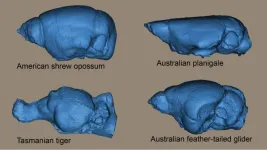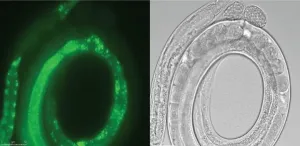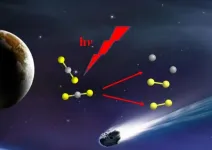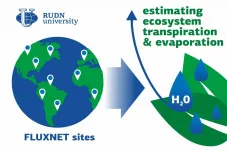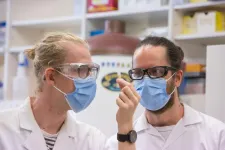(Press-News.org) Mason scientists employ a rapid-result, saliva-based test that significantly expands testing capacity, and an antibody test that can track vaccine response.
George Mason University announces it is introducing a rapid-result, saliva-based COVID-19 test that will greatly expand testing capabilities on its campuses this spring. The effort, led by Mason's faculty, is part of a comprehensive program to better track and control the virus on campus.
Mason scientists, who are pushing the boundaries of technologies that are keeping Mason's campuses safe, are also developing an antibody test that can track a body's response to the virus and vaccine. See more in this video.
The use of the saliva test with the recently acquired Fluidigm system, designed to analyze large numbers of test samples, will help Mason increase testing capacity from 1,000 tests per week to a goal of 10,000 by March, said Lance Liotta, co-director and co-founder of Mason's Center for Applied Proteomics and Molecular Medicine, who leads the CAP CLIA laboratory in which the COVID testing takes place.
CAP CLIA accreditation--from the College of American Pathologists (CAP) and the Centers for Medicare & Medicaid Services through the Clinical Laboratory Improvement Amendments (CLIA)--ensures laboratories provide precise test results and comply with professionally and scientifically sound laboratory operating standards.
"The more we test, the more we are able to identify people who are positive at the earliest stages of the infection and therefore stem the spread of infection," said Ali Andalibi, senior associate dean for the College of Science. "That's what we're striving toward."
Liotta leads the multidisciplinary team that is internationally recognized for its expertise in diagnostic testing. The team pivoted from its primary work in cancer research to take up the fight against COVID-19, following the start of the global pandemic last spring.
Mason was a model during the Fall semester for its efforts to combat the spread of the virus, with some of the lowest COVID-19 case numbers among Virginia's largest higher education institutions, and no known transmission in its classrooms.
"I've been very gratified to see the enormous amount of effort being put forth by Mason scientists in all the colleges toward the COVID crisis," Liotta said. "We collaborate with scientists in many different sectors of Mason, as we work together to develop these new strategies all the way from testing, to the methods, to how you collect samples, and how you care for patients."
The saliva test, which received an Emergency Use Authorization from the Food and Drug Administration, will help track symptomatic and asymptomatic cases on campus and will be available at five sites across Mason's three university campuses. The samples will be analyzed at Mason's Science and Technology Campus in Manassas, Virginia, in the CAP CLIA laboratories directed by research professor Virginia Espina. Turnaround time for results will be two days or less.
Julie Zobel, Mason's associate vice president for Safety, Emergency and Enterprise Risk Management, and her team led efforts to set up the campus infrastructure for testing. That entailed construction of five testing sites with card scanners, check-in counters and private saliva-collection booths. About 50 people, including 20 licensed medical professionals, were hired to staff the sites.
"It's been a challenge but we've had a large team of medical professionals, emergency and risk managers, researchers and lab personnel, and IT and finance professionals working tirelessly over the past five months to get us to this point," Zobel said. "I am proud to be part of such a high-performing and driven team all working towards keeping our community safe."
Liotta's team is also validating a novel test that measures a body's antibody response to the virus and COVID vaccine. The test will help researchers understand a person's post-vaccination response, how long individuals will remain resistant to the virus and how a person's immune system fights the virus.
"The antibody test is going to be the future because everyone wants to know, did the vaccine work for them?" Liotta said. "Somebody who has immunodeficiency syndromes gets the vaccine. Did the vaccine work for them? We can answer that question. We can also tell whether a patient should be donating their plasma to treat others."
INFORMATION:
About George Mason University
George Mason University is Virginia's largest public research university. Located near Washington, D.C., Mason enrolls 38,000 students from 130 countries and all 50 states. Mason has grown rapidly over the last half-century and is recognized for its innovation and entrepreneurship, remarkable diversity and commitment to accessibility. Learn more at http://www.gmu.edu.
The main culprit in cancer is healthy cells that have gone rogue and acquire the ability to divide uncontrollably. These cells acquire growth advantages over normal cells and manipulate their environment by altering the cellular pathways involved in growth and metabolism. Over the past few decades, various altered pathways and proteins have been identified as targets for therapeutic interventions. However, what remains challenging is selectively targeting cancer cells and ensuring that the drug reaches the tumor in adequate amounts, without severely affecting normal cells. And in this regard, biocompatible delivery vehicles (which are non-toxic to normal cells) can be useful.
One such potential candidate is "porphyrins," a group of organic cyclic compounds that form the ...
Being stretchy and squeezable may be the key to finding space for the brain in mammals, including humans.
An international study, co-led by Flinders University's Vera Weisbecker, has revealed that marsupial mammals like possums, kangaroos, and wombats appear to have a lot of flexibility when it comes to accommodating their brains into their skulls.
"The brain is one of the heaviest parts of the head, particularly in smaller mammals. But it needs to be placed in a way that doesn't interfere with the many vital functions of the head, such as seeing, hearing, smelling and of course feeding," says Dr. Weisbecker.
"Stowing" a large brain ...
WASHINGTON -- Researchers have developed a new approach that improves the image quality and contrast for holographic displays. The new technology could help improve near-eye displays used for virtual and augmented reality applications.
"Augmented and virtual reality systems are poised to have a transformative impact on our society by providing a seamless interface between a user and the digital world," said research team member Jonghyun Kim from technology company NVIDIA and Stanford University. "Holographic displays could overcome some of the biggest ...
(Singapore--January 28, 2021 11:00 p.m. SPT/10:00 a.m. EST)----Several leading international lung cancer researchers at a press briefing held by the International Association for the Study of Lung Cancer today, presented compelling new data revealing that factors of race, gender, sexual orientation and income continue to be significant barriers to those living with lung cancer. The press briefing is part of the IASLC's World Conference on Lung Cancer 2020 Singapore.
The press briefing is moderated by IASLC Communications Committee Chair Dr. Anne-Marie Baird, senior research fellow at Trinity College in ...
Clear rules for engineering transgenes that can be inserted and propagated over multiple generations of nematodes include ways to protect inserted genes from the organism's natural defenses against foreign DNA. Developed by KAUST researchers, the rules have implications for many research fields, including gene therapy development.
Scientists often study biological processes, such as normal and mutant gene functions, in the worm Caenorhabditis elegans because it has many genes and molecular pathways in common with humans. Specific gene functions can be investigated by injecting DNA into the worm's reproductive organs, where it links into what is known as an extra-chromosomal array. This array is eventually incorporated into the nucleus, where it is duplicated ...
A team led by Prof. SU Bing from the Kunming Institute of Zoology (KIZ) of the Chinese Academy of Sciences (CAS), Prof. LI Cheng from Peking University, and Prof. ZHANG Shihua from the Academy of Mathematics and Systems Science of CAS has reported the highest resolution by far of the 3D genome of the primate brain, and demonstrated the molecular regulatory mechanisms of human brain evolution through cross-species multi-omics analysis and experimental validation. The study was published in Cell.
The unique pattern of human brain development stems from accumulated genetic changes during human evolution. Among the huge number of diverging genetic changes, only a small portion of the between-species ...
Studying the creation and evolution of sulfur-containing compounds in outer space is essential for understanding interstellar chemistry. CS2 is believed to be the most important molecule in comet nuclei, interstellar dust, or ice cores. CS and S2 are the photodissociation fragments of CS2.
Forty years ago, the emission spectra of only CS and S2 species, and not those of CS2 species, were observed from several comets by the International Ultraviolet Explorer satellite. The photodissociation mechanism of CS2 molecules remains unclear, and S2 fragments have not been experimentally observed before.
Recently, a team led by Prof. YUAN Kaijun from the Dalian Institute of Chemical Physics (DICP) of the Chinese Academy of Sciences (CAS), in cooperation with Prof. WANG Xing'an's group ...
An ecologist from RUDN University together with colleagues from 14 countries compared three methods for estimating ecosystem transpiration in a study. In the first ever research with such a comprehensive data-set, the team used land-atmosphere water vapor flux data of collected at 251 locations all over the planet, from Australia to Greenland. The outcome of the research help to understand the role of plants in the global water and carbon cycles in the current predicament of global warming. The results of the study were published in the December 2020 issue of the journal Global ...
Western Carolina University researchers find a disproportionate number of inmates with violent offenses suffer from post-traumatic stress disorder, panic disorder and alcohol use disorder, and published their findings in the Journal of Criminal Psychology.
Alexa Barrett, clinical psychology master's student at WCU, and Al Kopak, associate professor of criminology and criminal justice at WCU, discovered the combination of PTSD, PD and AUD significantly increased the likelihood of violent offenses while conducting research at three county detention centers in North Carolina.
Supported by a Summer Research Assistantship provided by the Graduate School, the purpose of this study was to detail ...
A PhD student and 'beer scientist' has inadvertently discovered a way to conduct extremely small-scale brewing experiments, potentially leading to better beer.
It came about when University of Queensland PhD candidate Edward Kerr hit a hurdle when he completed a beer brewing experiment for a paper.
"I was looking at barley protein changes during the mashing stage of beer brewing, when one of the paper's reviewers asked if the changes were caused by temperature or time spent mashing the barley," Mr Kerr said.
"It was a good question, but to find out I'd need to brew all over again, with an instrument that would hold at least 23 litres ...
